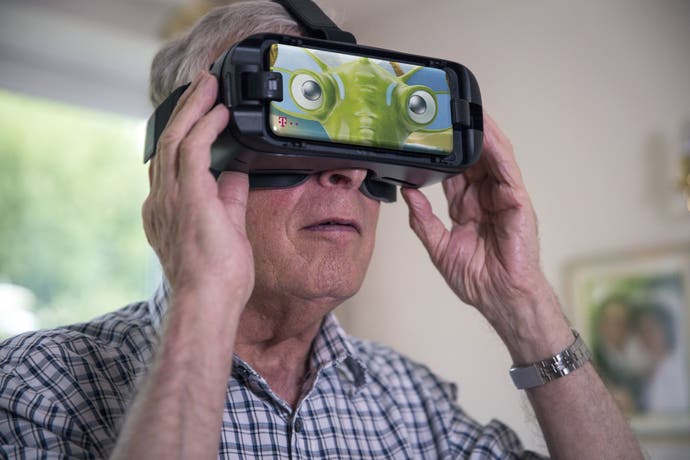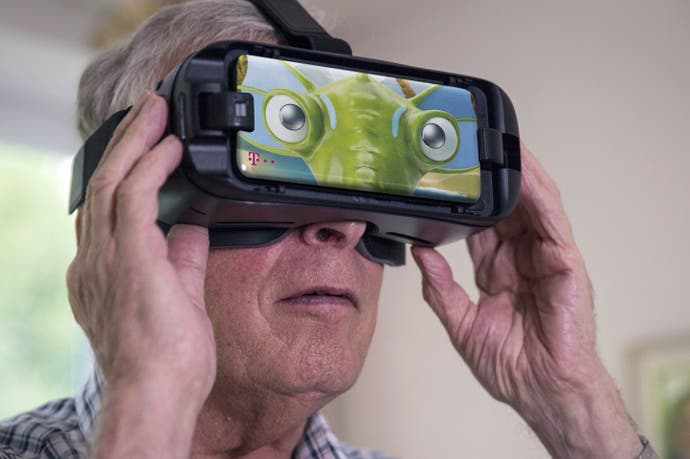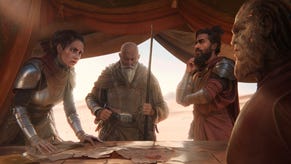Meet the virtual reality game designed to research dementia
It's a fun puzzle game named Sea Hero Quest VR.
A couple of weeks ago I got to try Sea Hero Quest VR - a virtual reality game which will, somewhat astonishingly, help in the fight against dementia.
I've seen the damage dementia can cause firsthand. There's little to be done to slow its creeping progress, or the inescapable fact it will affect even more people in very near future. The latest statistics are sobering. 850,000 people currently live with the disease in the UK. By 2051, that figure is expected to hit two million.
Two million people with dementia in the UK is an awful, scary prospect, so it's no surprise researchers are working to learn more about the condition as a matter of urgency. It may come as a surprise, however, to find the shape this research has now taken.
Sea Hero Quest VR is a colourful cartoony game designed to be played by those without dementia - and those with. It's a memory game which challenges your sense of direction, and in the background anonymously logs your results.
You play as a sea captain, aboard a ship you must sail through a watery maze. You are given directions to memorise then left to paddle off, with only your memory to guide you. At the end of some levels you are asked to fire a flare back to the rough point where you started - if you can remember where that is after being constantly turned around.

Other levels have you hunting down a sea creature in a vaguely uniform lake, then trying to return to the same spot from memory.
There are challenges to complete and collectibles to unlock, and after a few goes it becomes a little compulsive trying to hit the top score. But the real work is going on in the background, where my movements and mistakes are tracked and recorded, then fed back anonymously to the game's developer.
Sea Hero Quest VR is the work of UK studio Glitchers, who were tasked with the project by researchers at University College London and my old University of East Anglia. Funded by Deutsche Telekom, it's backed by Alzheimer's Research UK. Sea Hero Quest VR is the second game in the series, after another version of the game which launched back in 2015 for mobile phones. Both games are free to download.
While Sea Hero Quest's mobile version was designed to get into the hands of the largest audience, this new VR version is designed to provide far more detailed telemetry. Instead of finger swipes, this VR edition can record accurate body gestures such as head turning and gestures. The hope is that these will provide data on how memory deteriorates over time, and how we respond to the challenges of navigation.
The game asks you for basic personal details - gender, age, country of birth - and then tracks these against national averages. Findings from Sea Hero Quest's mobile version were startling - they showed a slow decline in memory from as young an age as 19.
This plays into Sea Hero Quest's eventual goal - to give data which will allow for the early identification of dementia signs. With this knowledge, it is hoped the spread of dementia can at least be slowed in the future. There's no easy path to treatment yet but, as in the game itself, it is hoped Sea Hero Quest will help chart a course.







.png?width=291&height=164&fit=crop&quality=80&format=jpg&auto=webp)

